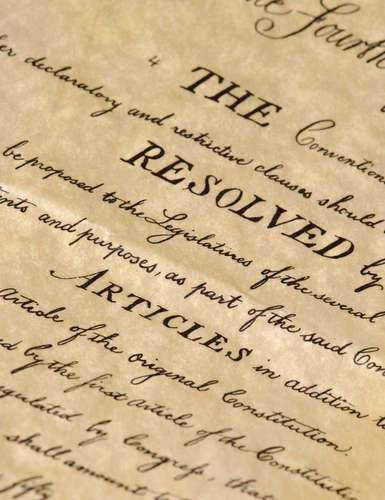
Dillon v. Gloss: The Basics
Dillon v. Gloss was a landmark Supreme Court Case originally argued on March 22nd of 1921. The case of Dillon v. Gloss held that if the Congress of the United States, when proposing amendments to the Constitution of the United States, may place a deadline on the amendment’s ratification in question. Moreover, the case of Dillon v. Gloss held that Congress’ selection of a seven-year time limit upon the ratification of what eventually became the 18th Amendment to the United States Constitution was not deemed to be unreasonable by the Court System.
The case of Dillon v. Gloss therefore held that the Congress of the United States may set deadlines for the ratification of new amendments to the Constitution, but the establishment is not necessary.
The case of Dillon v. Gloss was decided on May 16th of 1921. The Chief Justice in Dillon v. Gloss was Edward White and the Associate Justices to the case are as follows:
· Joseph McKenna; Oliver Holmes Jr.; William Day; Willis Van Devanter; James McReynolds; Mahlon Pitney; Louis Brandeis; and John Clarke
Dillon v. Gloss: The Background
The case of Dillon v. Gloss begins when Dillon was placed in custody for an arrest pursuant to the National Prohibition Act. While in custody, Dillon was denied his petition for a writ of habeas corpus. Dillon appealed this denial and claimed that the Eighteenth Amendment was inoperative since it was not ratified within the time frame set forth by the congressional resolution proposing the amendment. Additionally, Dillon claimed that the law was not in effect at the time the crime was committed, nor was it in effect at the time of his arrest.
Dillon v. Gloss: The Ruing
The Supreme Court of the United States in Dillon v. Gloss stated that proposal and ratification of amendments are not treated as unrelated acts but as successive steps in a single endeavor. Secondly, the Supreme Court in Dillon v. Gloss stated that because ratification is but the expression of the people and it is set forth when three-fourths of the States agree to it, a fair implication exists claiming that it must be contemporaneous in said number of States to reflect the general will of the people. Overall, the case of Dillon v. Gloss held that the United States Congress may institute a deadline for the ratification of new amendments to the Constitution of the United States, but it is not required.






























